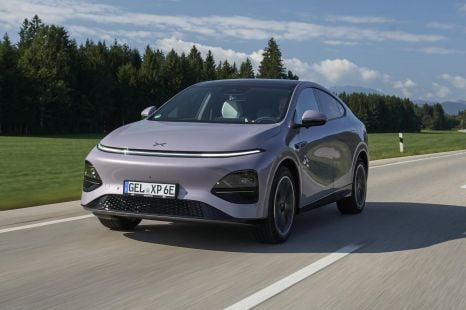

Neil Briscoe
2026 Xpeng G6 AWD Performance review: Quick drive
4 Days Ago
Australia's new vehicle market has started to ramp up again, with March sales up on the same month in 2024, but sales are still down in 2025.

Contributor
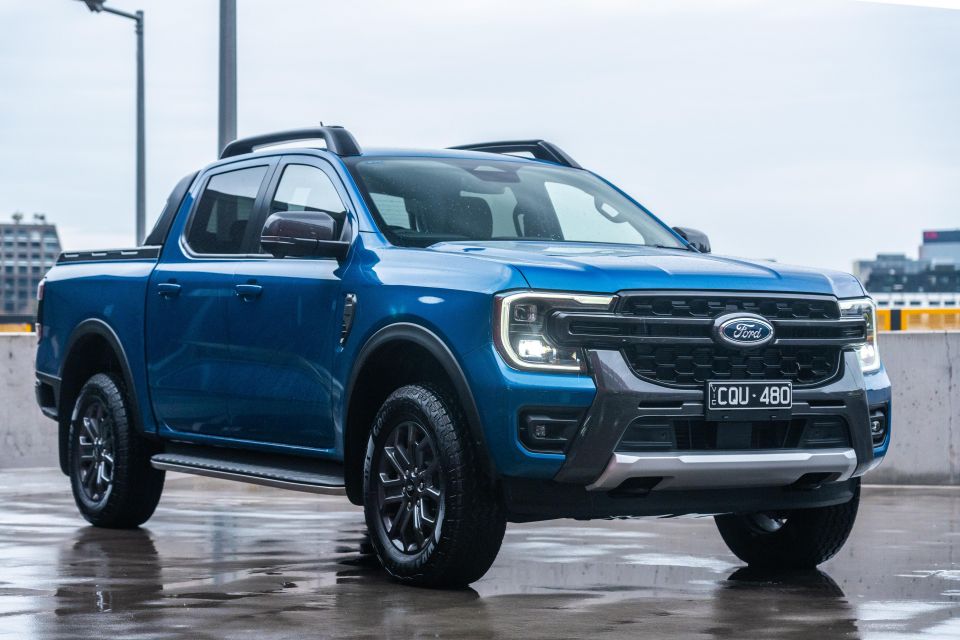

Contributor
The Ford Ranger has claimed its first monthly sales win in more than six months, leading home the strongest overall market sales so far this year.
VFACTS figures supplied by the Federal Chamber of Automotive Industries (FCAI) today show a total of 108,606 new vehicles were delivered in March 2025, increasing to 111,617 when including Tesla and Polestar figures from the Electric Vehicle Council (EVC).
The month’s total was up 1.2 per cent on the 109,731 deliveries made in March 2024.
Hundreds of new car deals are available through CarExpert right now. Get the experts on your side and score a great deal. Browse now.
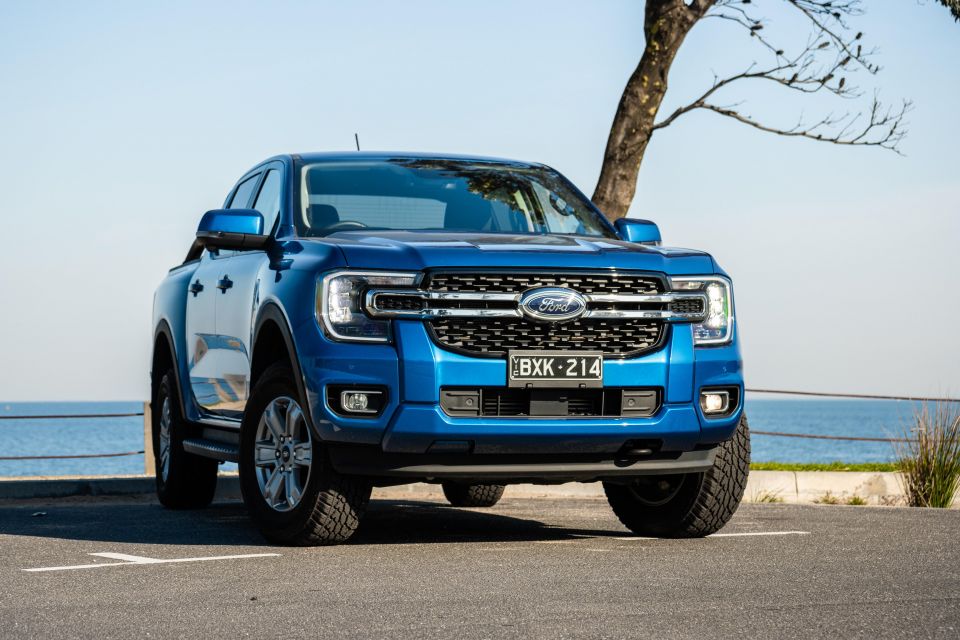
This has arrested a year-on-year sales decrease, after February sales dropped 7.9 per cent, while January was down 2.4 per cent.
In the opening three months of 2025, 295,952 vehicles have been delivered in Australia, a 2.8 per cent drop on the 304,452 deliveries made across the same period last year.
Electric vehicles (EVs) took a significant 19.9 per cent dive last month, the largest of any fuel type.
While petrol and diesel vehicle deliveries were also down – by 8.3 and 1.2 per cent, respectively – traditional hybrids and plug-in hybrids (PHEVs) continued to surge, recording increases of 22.8 and 380.1 per cent.
The latter figure comes as the Fringe Benefits Tax (FBT) exemption for PHEVs wrapped up at the end of the month, with buyers who took delivery after March 31 no longer eligible for the tax break.
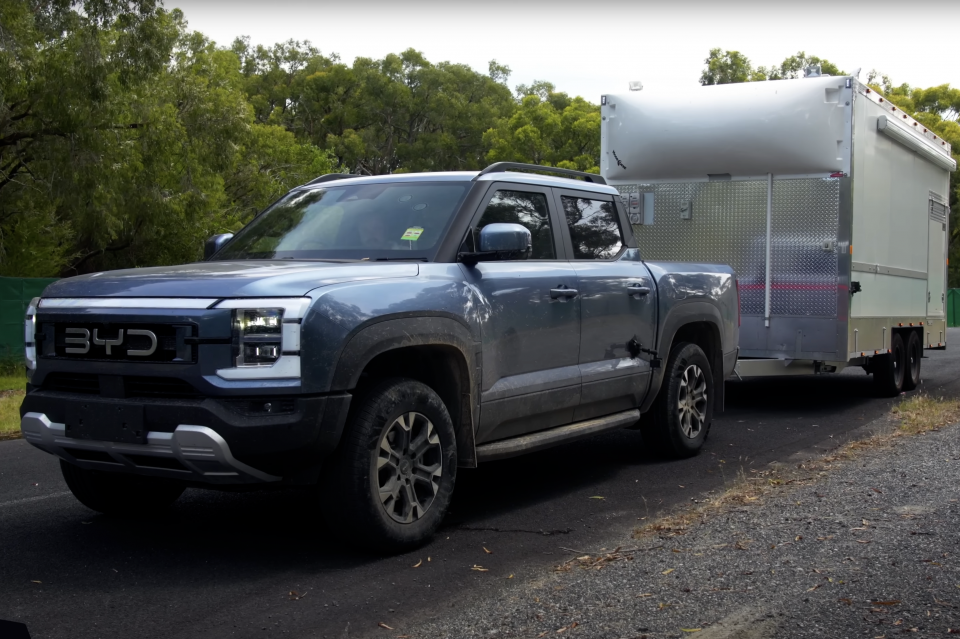
PHEV deliveries continue to be led by the BYD Shark 6 ute, which once again finished on the podium in overall ute sales, and just outside the top five overall.
This also helped propel BYD into seventh spot overall, becoming the best-selling Chinese brand for the month, the first time it’s achieved such a feat.
“We are at a critical point in transitioning to a lower-emission vehicle fleet. But the reality is clear: Australian families and businesses are not shifting in large numbers to EVs,” FCAI chief executive Tony Weber said in a media statement.
“While the supply of EVs is increasing, now with 89 models available in Australia, the demand for EVs is weak. The early adopters have acted but the rest of the vehicle-buying public has not followed.
“This is consistent with a number of other advanced markets around the world.
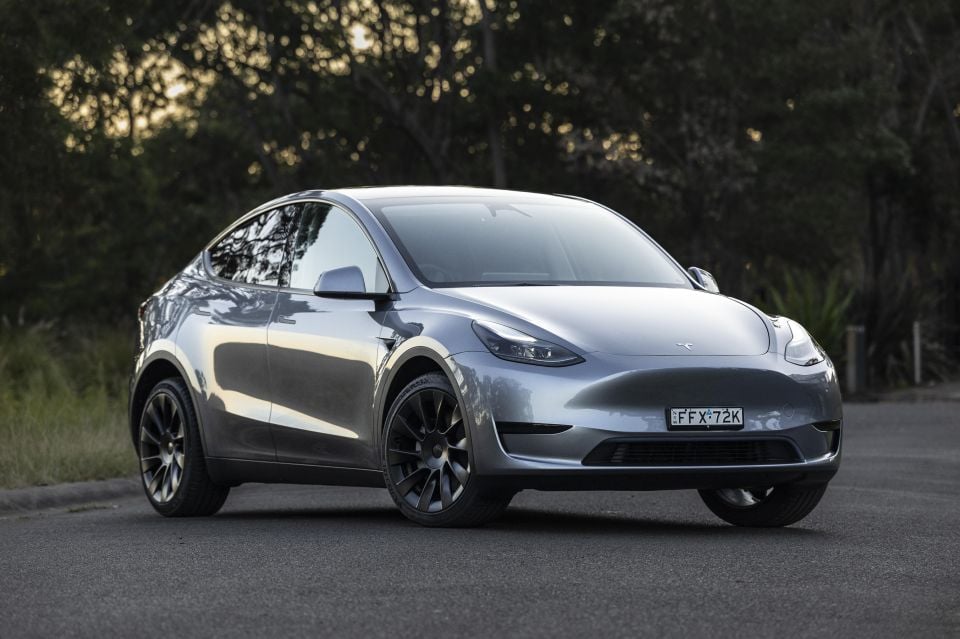
“The Australian automotive industry has long advocated for an ambitious and achievable emissions standard. Once again, questions must be asked about the Government’s modelling and, in particular, their assumptions about consumer acceptance of new low-emissions technologies.”
Deliveries of SUVs and light commercial vehicles (utes and vans) experienced an uptick on March last year – with deliveries increasing by 1.7 and 6.5 per cent respectively – however, passenger cars continue to slide down the list, with deliveries falling by almost 20 per cent.
Though medium SUVs took a 6.0 per cent hit, they’re still by far the most popular new vehicle type.
While the Toyota RAV4 wasn’t on top for the month – the first time since July last year – it continues to be the best-selling new vehicle overall this year.
Still missing from the sales charts are Deepal, Ineos, Mahindra, Smart and Xpeng.
Toyota had its best month of the year so far in March, delivering 20,541 vehicles, an increase of 8.3 per cent on 12 months prior. Year-to-date it’s logged 57,797 deliveries, also ahead of its record run in 2024.

Ford continues to sit in second, however, slower demand for its best-selling Ranger means the brand overall is experiencing a drop on last year’s figures.
Mazda retains third spot ahead of Kia, Mitsubishi and Hyundai in a relatively tight battle for the four places month-to-month, though all are comfortably ahead of BYD.
A record month and quarter for GWM wasn’t enough to keep BYD behind it, though it did leap past Nissan which had the largest year-on-year sales drop of any brand in the top 10.
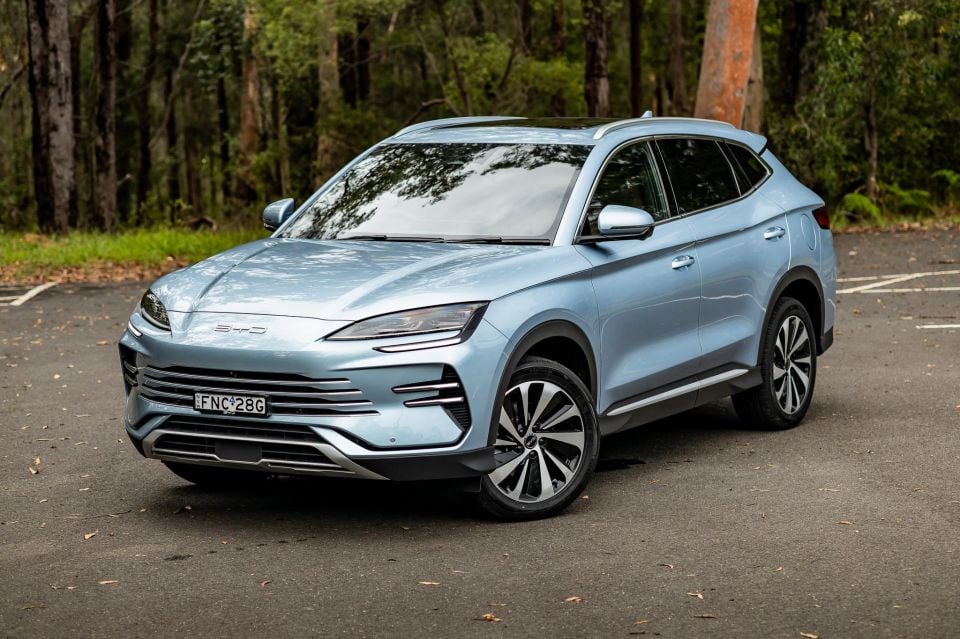
MG dropped two spots to 10th, while Isuzu continued to find itself outside the first 10 places, having yet to vault up so far this year.
Chery’s rapid growth since returning to Australia in 2023 continued, with a huge 293.2 per cent deliveries increase in March, the largest of any brand.
| Brand | March 2025 deliveries | YoY deliveries |
|---|---|---|
| Toyota | 20,541 | +8.3% |
| Ford | 8232 | -6.2% |
| Mazda | 8000 | -3.0% |
| Kia | 7307 | +3.4% |
| Mitsubishi | 7265 | -7.6% |
| Hyundai | 6813 | +13.8% |
| BYD | 4811 | +196.6% |
| GWM | 4393 | +21.4% |
| Nissan | 4079 | -18.0% |
| MG | 3926 | -0.6% |
| Isuzu | 3508 | -19.4% |
| Subaru | 3201 | -15.0% |
| Tesla | 2829 | -20.9% |
| Volkswagen | 2701 | -10.7% |
| Mercedes-Benz | 2531 | +33.0% |
| BMW | 2456 | -3.0% |
| Chery | 2182 | +293.2% |
| Honda | 1764 | +8.4% |
| Suzuki | 1705 | -15.7% |
| Lexus | 1295 | +17.1% |
| Audi | 1234 | -4.3% |
| LDV | 1215 | -9.7% |
| Isuzu | 1107 | +2.0% |
| Land Rover | 931 | +34.3% |
| Volvo | 725 | +13.1% |
| Mini | 611 | +90.9% |
| Skoda | 459 | -14.2% |
| Cupra | 416 | +95.3% |
| Renault | 388 | -27.2% |
| KGM SsangYong | 378 | -20.9% |
| Chevrolet | 360 | 12.5% |
| Ram | 266 | -29.1% |
| Fiat | 199 | +111.7% |
| Jeep | 190 | -19.1% |
| Geely | 188 | – |
| Polestar | 182 | +116.7% |
| Peugeot | 167 | +18.4% |
| Genesis | 121 | -6.9% |
| JAC | 117 | – |
| Zeekr | 112 | – |
| Leapmotor | 87 | – |
| Jaguar | 65 | -28.6% |
| Maserati | 45 | +4.7% |
| Alfa Romeo | 44 | -12.0% |
| Ferrari | 33 | +22.2% |
| Lamborghini | 28 | +47.4% |
| Aston Martin | 23 | -4.2% |
| Bentley | 12 | -25.0% |
| McLaren | 9 | +80.0% |
| Lotus | 5 | -84.8% |
| Rolls-Royce | 4 | +100.0% |
We may not have seen a Ford Ranger atop of the sales charts since June 2024, but the ute’s return to the front wasn’t without a year-on-year sales decrease.
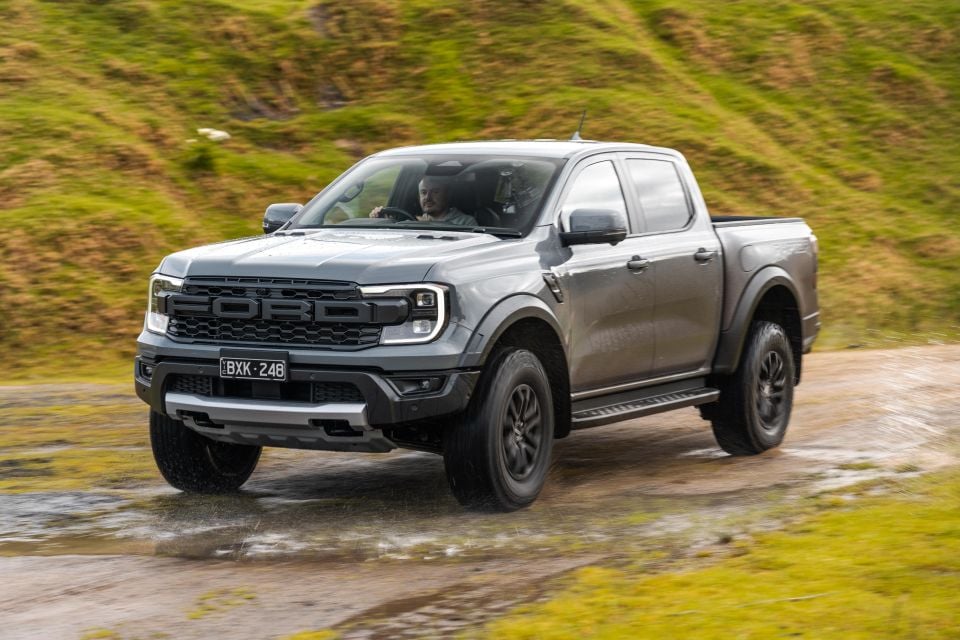
Fortunately for Ford, Toyota’s RAV4 suffered a larger drop, while an increase for the HiLux wasn’t enough to move the once best-selling model back up the order.
In a tit-for-tat battle, the Mitsubishi Outlander moved back past the Toyota LandCruiser Prado, though both scraped just ahead of the BYD Shark 6, which recorded its best sales month yet.
The Toyota Corolla was the only traditional passenger vehicle in the top 20 sales, with the rest of the list made up of SUVs and utes.
| Model | March 2025 deliveries |
|---|---|
| Ford Ranger | 4932 |
| Toyota RAV4 | 4321 |
| Toyota Hilux | 4081 |
| Mitsubishi Outlander | 3005 |
| Toyota LandCruiser Prado | 2871 |
| BYD Shark 6 | 2810 |
| Ford Everest | 2100 |
| Isuzu D-Max | 2088 |
| MG ZS | 2020 |
| Hyundai Kona | 2011 |
| Mitsubishi Triton | 1954 |
| Nissan X-Trail | 1945 |
| Kia Sportage | 1847 |
| Hyundai Tucson | 1831 |
| Mazda CX-5 | 1734 |
| Tesla Model Y | 1725 |
| GWM Haval Jolion | 1568 |
| Toyota Corolla | 1527 |
| Isuzu MU-X | 1420 |
| GWM Haval H6 | 1380 |
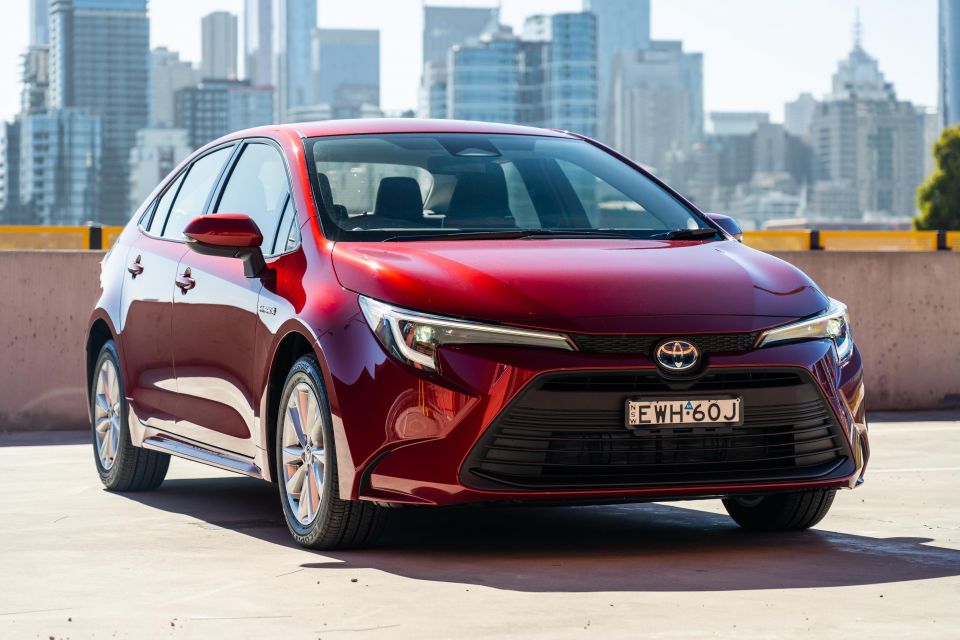
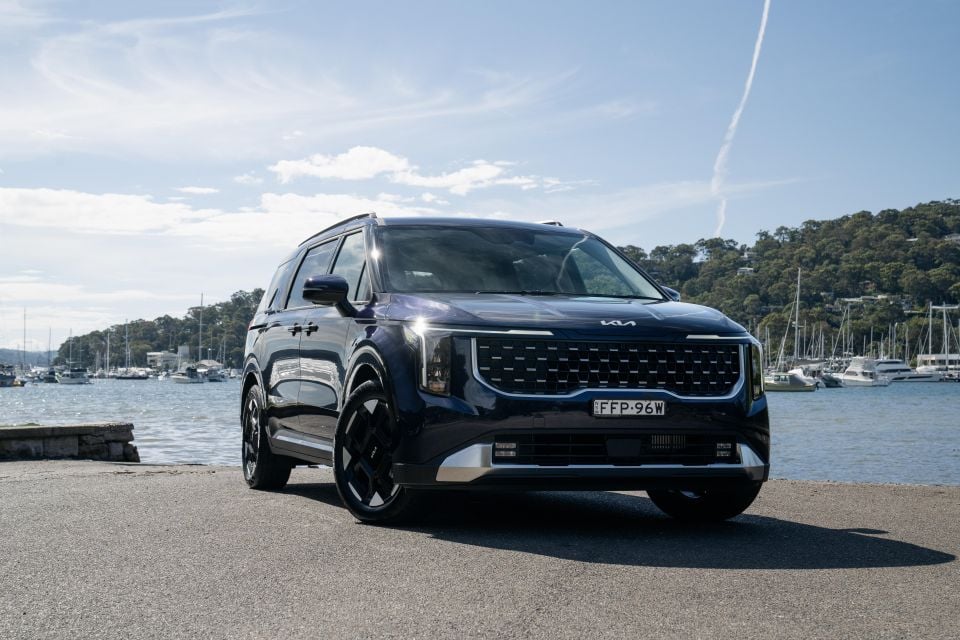
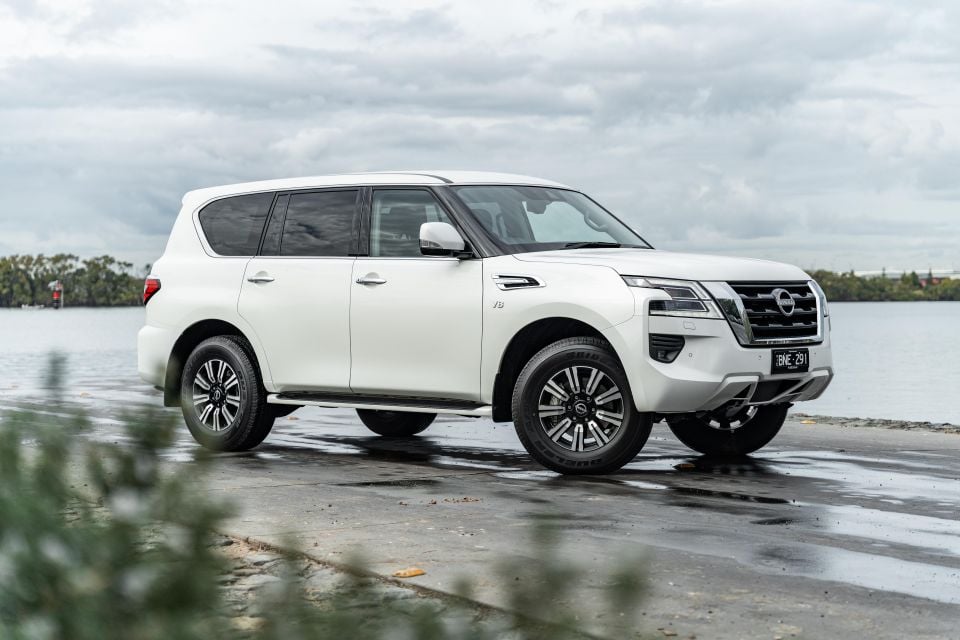
Includes Tesla and Polestar sales.
| Category | March 2025 sales | Market share |
|---|---|---|
| SUV | 67,586 | 60.6% |
| Light commercial | 24,560 | 22.0% |
| Passenger car | 15,335 | 13.7% |
| Heavy commercial | 3448 | 3.1% |
Includes Tesla and Polestar sales.
| Segment | March 2025 sales | Change YoY |
|---|---|---|
| Medium SUVs | 27,078 | -6.0% |
| Small SUVs | 18,233 | +12.5% |
| 4×4 utes | 19,107 | +8.4% |
| Large SUVs | 15,521 | 19.3% |
| Small cars | 6032 | -19.6% |
Includes Tesla and Polestar sales.
| State/territory | March 2025 sales | Change YoY |
|---|---|---|
| New South Wales | 34,367 | +1.7% |
| Victoria | 30,428 | +1.1% |
| Queensland | 22,417 | -4.8% |
| Western Australia | 12,577 | +13.6% |
| South Australia | 7304 | +4.5% |
| Tasmania | 1806 | +12.2% |
| Australian Capital Territory | 1753 | +10.7% |
| Northern Territory | 965 | +3.8% |
| Total | 111,617 | +1.7 |
Excludes Tesla, Polestar and heavy commercial sales.
| Buyer type | March 2025 sales | Change YoY |
|---|---|---|
| Private | 54,806 | -2.5% |
| Business | 41,404 | +4.7% |
| Rental | 5434 | -13.5% |
| Government | 2826 | -13.9% |
Includes Polestar and Tesla sales.
| Fuel type | March 2025 sales | Change YoY |
|---|---|---|
| Petrol | 43,785 | -8.3% |
| Diesel | 31,548 | -1.2% |
| Hybrid | 16,830 | +22.8% |
| Electric | 8385 | -19.9% |
| PHEV | 6932 | 380.1% |
Includes Polestar and Tesla sales.
| Country | Sales | Change YoY |
|---|---|---|
| Japan | 33,916 | +1.0% |
| Thailand | 21,803 | -10.0% |
| China | 21,358 | +21.0% |
| Korea | 13,288 | -3.4% |
| Germany | 5,424 | 12.6% |
MORE: VFACTS February 2025: Petrol, diesel and EV sales drop as PHEVs, hybrids surge MORE: VFACTS January 2025: Slow start to slower year
Born and raised in Canberra, Jordan has worked as a full-time automotive journalist since 2021, being one of the most-published automotive news writers in Australia before joining CarExpert in 2024.


Neil Briscoe
4 Days Ago
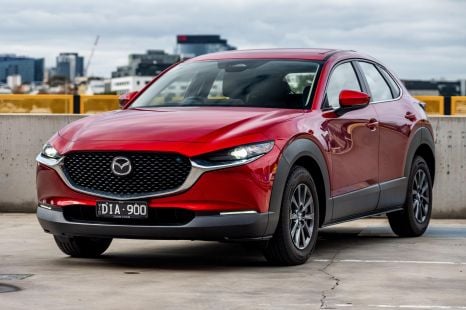

Max Davies
3 Days Ago
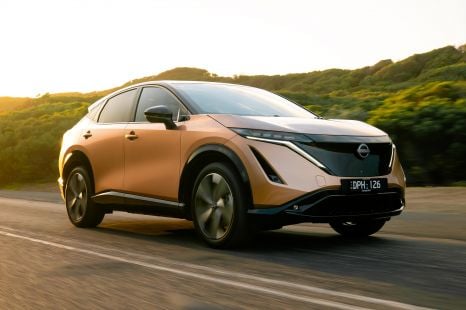

James Wong
2 Days Ago
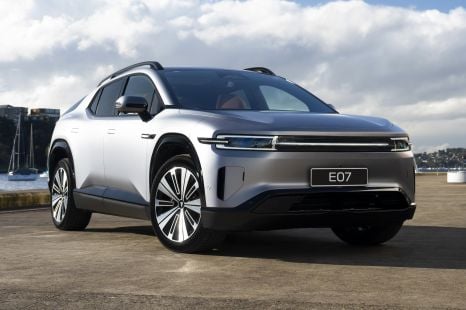

William Stopford
2 Days Ago
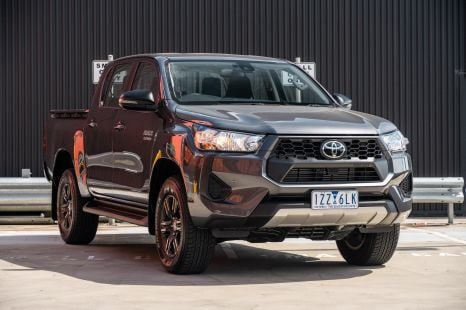

Josh Nevett
1 Day Ago
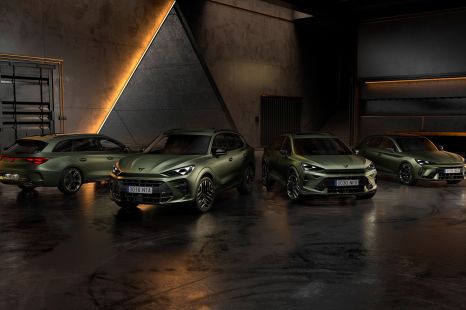

James Wong
21 Hours Ago